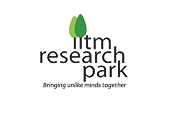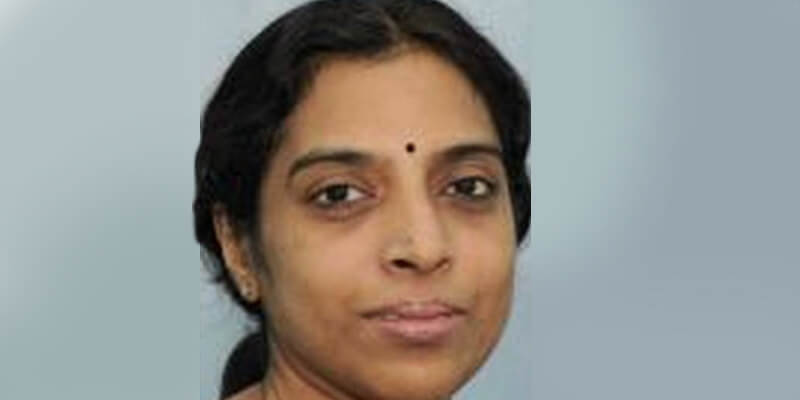Facilitates companies to tap faculty, student talent.
“There is humongous amount of energy within the campus, which lies largely untapped. By co-locating a research park adjacent to the IIT, we can tap that,” says Dr Shekhar.
N. Ramakrishnan
Chennai, Oct. 4
The tall building stands out as you branch off the busy Old Mahabalipuram Road and drive along a tree-lined street. It is a warm afternoon and as you walk up to the building you are tempted to linger outside for a while, thanks to a strong and pleasant breeze.
There are quite a few people lounging outside, either having their lunch sitting under a tree’s shade or simply enjoying a few minutes break before they get back to their work stations. Work on the building is not fully complete — some finishing touches are being given on the outside, while inside there is a lot of activity going on.
Research park
This is the first of the three planned buildings at the research park being put up by the Indian Institute of Technology-Madras at Taramani — Chennai’s hub for educational and research institutions. Ginger, the Tata Group’s budget hotel brand, has opened an 85-room facility on the top floor of IIT-M Research Park.
The IITM Research Park, adjacent to the IIT, provides space for research by companies with greater and sustained interaction with the IIT and its faculty. The companies can also tap into the IIT’s student pool.
Cos moving in
A number of software companies including Tata Consultancy Services, Cognizant Technology Solutions, Amada Soft India and ARCI have taken space. Others such as BHEL, Nissan and Caterpillar have also booked space. Nissan plans to carry out research on fuel cells, while Caterpillar will focus on a number of areas including product development.
Collaborative work
“What we are trying to do here is collaborative work,” says Dr Sandhya Shekhar, Chief Executive Officer, IITM Research Park. The idea is to bring together three distinct entities — industry with its knowledge of the market, faculty members with their domain expertise and students with their ability to be highly creative, and make research relevant to what is required on the ground.
This is how university research parks function elsewhere and IIT Madras has modelled its research park on some of the best in the US.
“There is humongous amount of energy within the campus, which lies largely untapped. By co-locating a research park adjacent to the IIT, we can tap that,” says Dr Shekhar.
Tapping talent
Companies no longer need to wait for a summer project or a vacation to be able to employ the students. The students can engage with the companies so that they learn a lot and at the same time bring creativity to the companies. “If you get fresh ideas from students, that is, like a burst of energy,” she adds. The students will be able to participate in research work even when their academic programme is underway, making the course more wholesome.
This is the first of the three buildings that will come up on the campus, which when fully built will have about 1.6 million sq ft of space. It will have seven conference rooms, an auditorium and a food court.
Dr Shekhar recollects a feedback she got from someone in Purdue University, who told her, “don’t worry about the research, it will happen. Worry about the food. If you have good food, research will follow.”
Entrepreneurship
IIT-M identified the need to nurture entrepreneurship as one of the objectives of the research park and has housed an incubation centre for start-ups at the park. It feels that the ecosystem — of start-ups being able to tap the experience of larger companies and at the same time being mentored by IIT faculty members — would help nurture and grow the start-ups.
Without getting into the rental rates for space at the research park, both at the incubation centre and for larger companies, Dr Shekhar emphasises that the project is not a real-estate proposition. The rentals will be much lower than that prevailing outside, but still the intent is different, she adds.
Space allotment
There will be a screening committee for requests for space in the research park, according to her, to find out the intent behind asking for space.
“We have something unique and proprietary to our business model, which is the credit system,” she adds. This credit system, will measure the level of interaction between the companies and IIT. “They have to earn a certain amount of credits to continue in the research park.”
“We would like good research happening here, good ideas emanating from here, strong IP (intellectual property) being generated, those would be the metrics on which we would like to measure ourselves,” Dr Shekhar adds.
Ginger hotel
The Tata group’s Ginger group of budget hotels has opened its first hotel in Chennai on the 11 {+t} {+h} floor of the research park. A lot of companies felt a need for a hotel in the vicinity — one that is functional, neat and would serve as a kind of transit accommodation.
A search on Ginger Hotels’ Web site reveals a “special intro rate” of Rs 1,499 for a room for one night for an adult (Rs 1,749 with taxes) and a “standard rate” of Rs 1,999 (Rs 2,249 with taxes).


